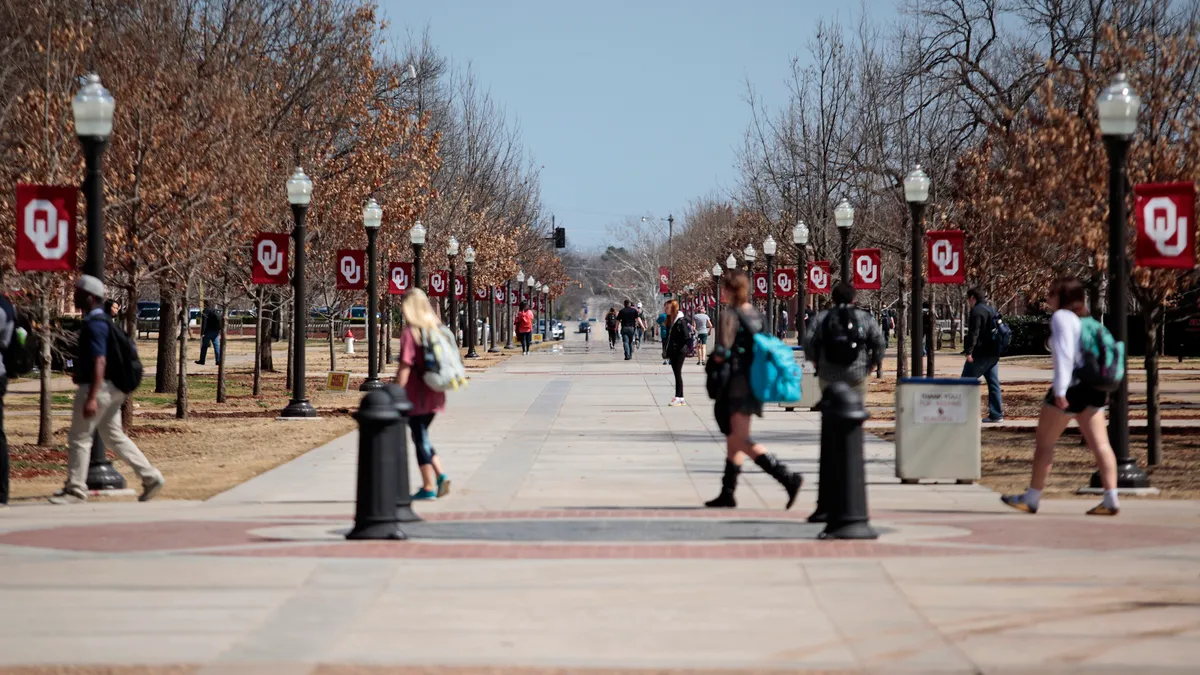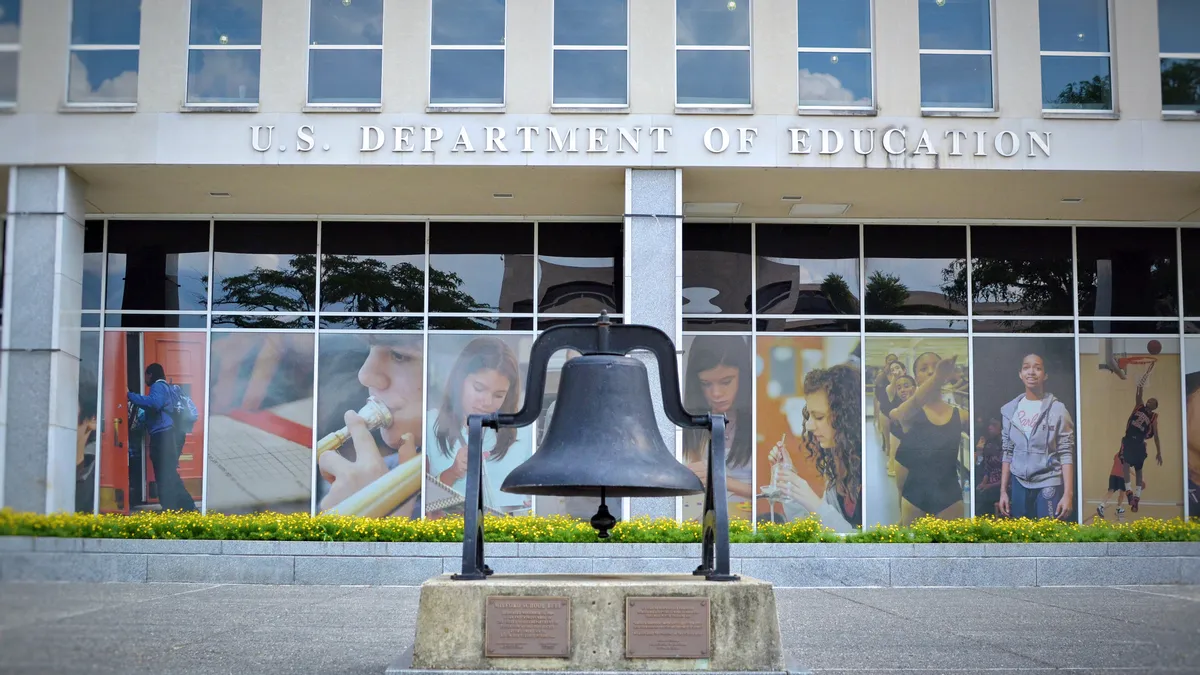Dive Brief:
-
The College Board is asking college admissions officers not to penalize students who weren't able to take the SAT because of the coronavirus pandemic and to accept scores that were submitted late.
-
The testing provider also delayed plans to offer an at-home SAT this year because it would have required students to have "three hours of uninterrupted, video-quality internet." It's also adding more test dates starting in August to alleviate high demand.
-
The pandemic has highlighted the disparate access students have to standardized testing and preparation materials. Many prominent colleges are no longer requiring SAT and ACT scores for admission.
Dive Brief:
Roughly 1 million high school juniors were unable to take the SAT for the first time because of widespread testing cancellations. The College Board in April floated the idea of at-home SAT testing, though recent technical issues with its remote Advanced Placement (AP) tests may have hamstrung those plans.
Thousands of high school students reported glitches with their AP tests last month that, in some cases, prevented them from uploading their exam responses. The College Board offered them makeup tests in June and contended that fewer than 1% of students experienced issues submitting answers.
Virtual versions of the SAT have also raised concerns from student advocates, who note that many low-income students don't have access to high-quality Wi-Fi for prolonged periods. And with many regions still being asked to shelter in place, students may not be able to find a suitable place in their homes to take the three-hour exam.
The College Board is adding more SAT test dates and is working to increase seating capacity in light of social distancing requirements at sites experiencing high demand. But students in major cities that have been battered by the coronavirus, such as New York and Boston, will likely struggle more to find open seats, the company noted.
"There are more important things than tests right now," College Board CEO David Coleman said in a statement. "We therefore are asking our member colleges to be flexible toward students who can't submit scores, who submit them later, or who did not have a chance to test more than once."
Although Coleman noted that the pandemic has prevented students from taking the test multiple times or at all, this has long been the case for many low-income students who can't afford exam preparation materials or don't have time to sit for the test again.
The College Board offers fee waivers to low-income students. However, the testing provider estimates about one-third of low-income students who take the test when it's offered during their school days miss out on the waivers. The organization is coordinating with schools to identify eligible students and increasing outreach to them.
More than 1,200 colleges have already suspended testing requirements for students enrolling in the fall of 2021, according to FairTest. Although many of these policies are temporary, some institutions are making longer-term changes. The University of Oregon is making the scores optional for undergraduates, while Davidson College plans to reevaluate the change after a pilot period.
Most notably, the University of California System, which enrolls nearly 300,000 students, announced last month that it will phase out the SAT and ACT as a condition for admissions — dealing a major blow to testing operators, which lobbied hard to keep the requirement. Testing experts predict the move could sway other colleges to drop the scores as well.
The news comes as the system is being sued for its use of the scores by a coalition of civil rights groups and students. They say the tests ask racially-biased questions and disadvantage low-income students, many of whom can't afford exhaustive tutoring and test preparation materials.
This post as been updated with information about College Board fee waivers.











